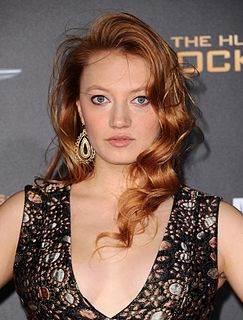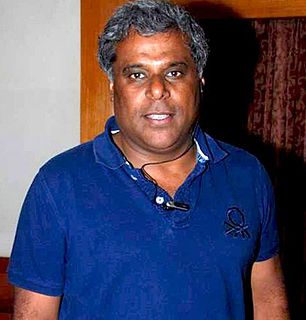A Quote by Andy Serkis
(The) process of acting is no different to conventional screen acting, in that it's providing a perfect interface between the director and the performer. So there's no sort of long way around a viral committee of animators.
Related Quotes
Modern acting is method acting, most of it. And there are sort of different schools, so I guess I'm not really from one school or another. I had a number of different teachers but they were all kind of drawing from the same pool, which is - What do you want? What are you doing to get what you want? And, what is in the way? These are basic acting questions. Knowing the answers to those questions. So you're talking about objectives and actions and obstacles. That's a sort of shorthand that gives you a language.
It's weird, I love acting and stand-up is a very unique, solitary thing where you are the writer, performer and director. But acting is incredibly rewarding, working and interacting with people to create funny moments. I can't imagine not doing acting or stand-up, I really enjoy both of them that much.
My belief about performance capture is that it's a technology which allows actors to play extraordinary characters. But from an acting perspective, I've never drawn a distinction between playing a conventional, live action character and playing a role in a performance capture suit. And from a purely acting point-of-view, I don't believe there should be a special Oscar category because I think it sort of muddies the waters in a way.
I couldn't believe it! I mean, I'd always dreamed of acting on the screen - my previous background was all theater - but I wasn't sure if the opportunity would ever present itself. Not only was this acting for the screen, this was acting in 'The Hunger Games!' I knew that I had to give this audition my all.
When it comes to acting on green screen, it doesn't really make all that much of a difference to me because how you interact with your environment or characters is always dictated by your imagination. So when you're acting against a green screen, you have more of an opportunity to create your own world. So what was magical throughout this process was watching this movie come to life with the 3D.
I think the best models are actors, you're taking on a character. In that sense, I have been acting for a long time. It didn't seem like a crazy transition. Acting is a bigger step into modelling in a way. Modelling is easier when you don't look like yourself. When you look like a different person, you feel different. Acting goes deeper into that, you have to move and talk like that character. I love it.
Concurrently, while I was in school, while I was winning awards for acting, I was winning awards for singing, in high school. One of the reasons why I decided to continue on with the acting was the opera world is fraught with a very long process, and I did love the acting, as well. The acting took off sooner, and then you get involved with that.
When I'm in the studio, I write the music, I play the different instruments, I produce it, I arrange it, and it's a self-indulgent exercise. It's the way I make my music. And when I'm acting, I get to leave myself behind, which is a relief. I get to collaborate with a director; I respect the director's medium and all the actors and actresses. So at the end of the day, it's about a character and it's about a director's vision. It's a really good balance for being so intense and alone in my personal process of making music.
I think I'd rather do [acting] in the real place. It requires different things, working with green screen, but its an imaginative exercise anyway, the whole business of acting, so it just gives you a bit more to feed the imagination. Unless it's really silly, just two of you stuck in a space with nothing but green screen that's got to be pretty difficult.


































